Search Results
Showing results 41 to 60 of 642
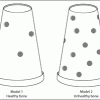
Space Stations: Bones of Contention
Source Institutions
In this activity, learners make models representing bones on Earth and bones that have been in space. They discover what happens to bones without proper exercise and nutrition.
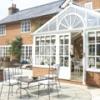
Solar Structures
Source Institutions
In this activity, learners explore how the power of the sun can be harnessed to heat and cool a building.

Plugged in to CO2
Source Institutions
In this activity, learners investigate various appliances and electronics, discovering how much energy each uses and how much carbon dioxide (CO2) is released to produce that energy.
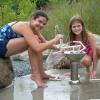
Measure the Speed of a Water Leak
Source Institutions
In this activity (page 2 of PDF under GPS: Glaciers Activity), learners will measure the rate at which water streams out of a leaky cup.
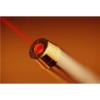
Delta, Delta, Delta
Source Institutions
In this experiment, learners construct an equilateral triangle using graph paper, a pencil, protractor and ruler. They also make a "laser triangle" using a laser pointer and front-silvered mirrors.
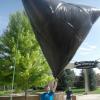
How Can Gravity Make Something Go Up?
Source Institutions
In this activity, learners use cheap, thin plastic garbage bags to quickly build a solar hot air balloon. In doing so, learners will explore why hot air rises.
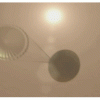
Landing the Rover
Source Institutions
In this team design challenge (page 19-24 of PDF), learners "land" a model Lunar Rover in a model Landing Pod (both previously built in activities #3 and #4 in PDF).
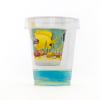
Ocean Acidification in a Cup
Source Institutions
Ocean acidification is a problem that humans will have to deal with as we release more and more carbon dioxide into the atmosphere.

Good News: We're on the Rise!
Learners build a simple aneroid barometer to learn about changes in barometric pressure and weather forecasting. They observe their barometer and record data over a period of days.

Acid Rain Effects
Learners conduct a simple experiment to model and explore the harmful effects of acid rain (vinegar) on living (green leaf and eggshell) and non-living (paper clip) objects.

Dry Ice Comet
Source Institutions
In this activity, dry ice and other items are used to construct a demonstration model of a comet that illustrates the comet nucleus, coma, and tails.

Dunking the Planets
Source Institutions
In this demonstration, learners compare the relative sizes and masses of scale models of the planets as represented by fruits and other foods.
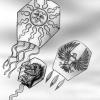
Sled Kite
Source Institutions
In this activity, learners build a sled kite that models a type of airfoil called a parawing.

Physics Over the Sink: Water Glass Magic
Source Institutions
In this simple demonstration, learners investigate the properties of air pressure. Learners place an index card on top of a glass full of water, then invert the glass.
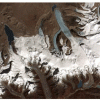
Earth's Energy Cycle: Albedo
Source Institutions
In this activity, learners experiment and observe how the color of materials that cover the Earth affects the amounts of sunlight our planet absorbs.
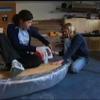
Homemade Hovercraft!
Source Institutions
This activity (on page 2 of the PDF under SciGirls Activity: Hovercraft) is a full inquiry investigation into hovercraft engineering and design optimization.
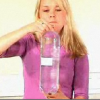
Cartesian Diver
Source Institutions
In this demonstration, learners observe the effects of density and pressure. A "diver" constructed out of a piece of straw and Blu-Tack will bob inside a bottle filled with water.
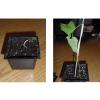
What's Hiding in the Air?: Acid Rain Activity
As a model of acid rain, learners water plants with three different solutions: water only, vinegar only, vinegar-water mixture.

A Recipe for Air
Learners use M&Ms® (or any other multi-color, equally-sized small candy or pieces) to create a pie graph that expresses the composition of air.
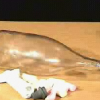
Amazing Marshmallows
Source Institutions
In this demonstration, learners observe the effects of air pressure. They will watch as marshmallows inside a bottle expand as a vacuum pump removes air from the bottle.
